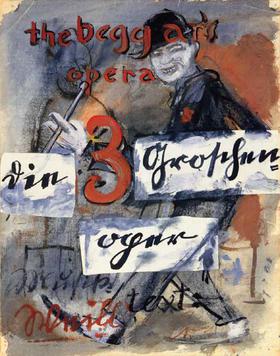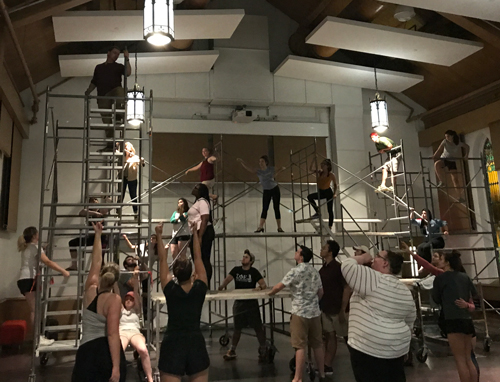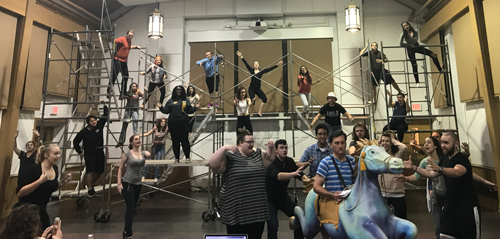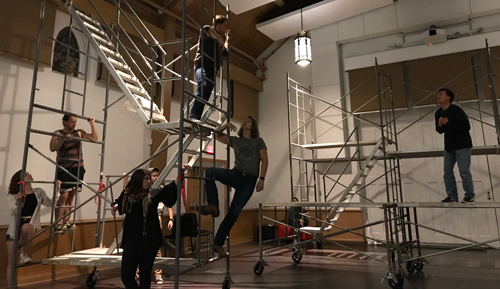by Jarrett Hoffman

On Friday, October 27 at 7:30 pm at Maltz Performing Arts Center, Cleveland Opera Theater opens its season with The Threepenny Opera, co-produced by Baldwin Wallace Conservatory. Presented in English, the work brings together Kurt Weill’s genre-fusing music and Elisabeth Hauptmann’s and Bertolt Brecht’s famously provocative text, adapted from John Gay’s 18th-century English ballad opera, The Beggar’s Opera. A second performance will be given on Sunday, October 29 at 3:00 pm.
“It’s a relevant, exciting piece that hasn’t been done here for a long time, and this is going to be a special version,” said Skiba, who also serves as director of opera studies at BW. “Sometimes the word ‘opera’ scares people, but this will feel more like musical theater. It’s outrageous and vibrant.”
As in the Brechtian tradition of Epic Theater, Skiba said, “The goal is to create an encounter for the audience in which they’re aware that they’re watching something. We’re almost holding their faces to the fire. We’ve been telling the ensemble to look at them and make them feel judged, make them feel uncomfortable.”
The work is charged with political themes, but Skiba has eschewed supporting any particular cause. “Our audience and our cast are diverse, and we’ve got people with all different opinions,” he said, “but you can be of many different persuasions and find an angle in this. You’ll find something that upsets you, something that makes you laugh, and something to celebrate. There’s a Roman-Polanski-meets-Mel-Brooks feel to it.”

The cast includes a couple of professionals — local lyric soprano Laura Pedersen as the Street Singer, and BW Voice Faculty Chair Marc Weagraff as Sheriff Tiger Brown — alongside students from the BW Voice and Opera, Theater, and Music Theater programs.
“This piece straddles musical genres,” Skiba said. “We have the straight-up coloratura soprano throwing off high C’s and vocal pyrotechnics, but there’s also belting, straight tone, breathy singing, off-the-voice singing, and everywhere in between.” He added that versatility is an important element of the BW’s Voice and Opera program. “Opera singers have to be able to do crossover, be text-driven, and not just stand there like technique on a stick but actually use the voice and body to communicate. Educationally this piece is great for that because there’s nowhere to hide.”

The Pittsburgh native said that many performances err on the side of casting either actors or traditional opera singers, “rather than singing actors going for it with reckless abandon. We were able to handpick people in the program and in the community, and in terms of vocalism and musicianship, this is going to be the best-sounding Threepenny I’ve heard.”

Finally, Skiba made a point to note that while most Cleveland Opera Theater productions are family-friendly, this one isn’t, thanks to mature language and themes. “Parents can make their own decisions, but if this were a movie it would probably be rated R.”
Published on ClevelandClassical.com October 23, 2017.
Click here for a printable copy of this article



